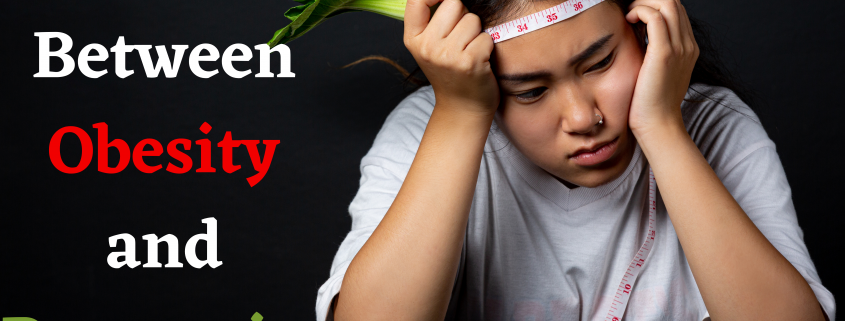Relation Between Obesity and Depression
Obesity is a complicated condition characterized as excessive fat deposition in the body that puts a person’s health at risk. One of them is depression. Obese persons, compared to healthy ones, have a higher risk of depression, according to studies.
Obesity commonly begins in childhood, with the main player being a lack of exercise, an irregular dietary pattern, and poor food choices. Obesity is developed by a high diet of fast foods, fried foods, and other high-energy foods. Obese adolescent girls are more likely to develop depression than obese adolescent boys, according to studies.
Some of the handpicked reasons which may trigger depression in the obese can be their struggle to complete the daily activities, low self-esteem or self-image, their unsuccessful attempts to reduce their body weight and the raising health problems that would pose a challenge in the future.
According to recent studies, those with a higher BMI have a thinning of the cortex in the brain, which leads to Alzheimer’s disease. To avoid this, it is recommended that you need to maintain a normal BMI from childhood, and if you are already fat, than losing weight should be a top goal.
Ref: https://www.dossindia.com/what-is-body-mass-index-bmi-how-it-is-calculated/
Obesity and depression, two important health issues that today’s adolescents are facing, both increase the risk of developing cardiovascular disease at a young age if not addressed. Intensive research on the link between the two has concluded the following reason why depression is more common in the obese.
Peer victimisation is more common in obese people than in non-obese people, according to research, and it is a predictor of depression. Obese teenagers are at a higher risk of developing it.
Body dissatisfaction is another major predictor of depression which plays a significant role in escalating depression among the college students especially among females.
Low self-esteem as a result of being unable to accomplish daily activities, teasing by others, social isolation, and constant dissatisfaction with their own appearance all contribute to depression among obese teens.
People who underwent weight loss surgery for obesity were shown to be successful in losing weight and overcoming depression, according to a study.
The message to all fat people is to see a doctor as soon as possible about their health problems and to follow the doctor’s recommendations to get back to normal.
If you’re healthy, avoid overeating, eating too much fast food, etc., stick to a dietary plan, and exercise your body to digest the food you eat. Stay healthy by eating well.


 +919011100010
+919011100010 


